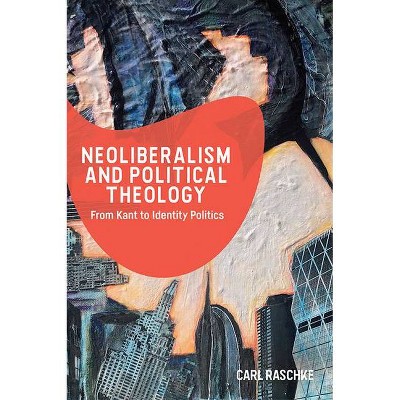The Political Theory of Neoliberalism - (Currencies: New Thinking for Financial Times) by Thomas Biebricher (Hardcover)

Similar Products
Products of same category from the store
AllProduct info
<p/><br></br><p><b> About the Book </b></p></br></br>This book offers an original analysis and critique of neoliberalism as it pertains to the state, democracy, science, and politics, demonstrating that neoliberalism is more than the doctrine of self-regulating markets.<p/><br></br><p><b> Book Synopsis </b></p></br></br><p>Neoliberalism has become a dirty word. In political discourse, it stigmatizes a political opponent as a market fundamentalist; in academia, the concept is also mainly wielded by its critics, while those who might be seen as actual neoliberals deny its very existence. Yet the term remains necessary for understanding the varieties of capitalism across space and time. Arguing that neoliberalism is widely misunderstood when reduced to a doctrine of markets and economics alone, this book shows that it has a political dimension that we can reconstruct and critique. Recognizing the heterogeneities within and between both neoliberal theory and practice, <i>The Political Theory of Neoliberalism</i> looks to distinguish between the two as well as to theorize their relationship. By examining the views of state, democracy, science, and politics in the work of six major figures--Eucken, Röpke, Rüstow, Hayek, Friedman, and Buchanan--it offers the first comprehensive account of the varieties of neoliberal political thought. Ordoliberal perspectives, in particular, emerge in a new light. Turning from abstract to concrete, the book also interprets recent neoliberal reforms of the European Union to offer a diagnosis of contemporary capitalism more generally. The latest economic crises hardly brought the neoliberal era to an end. Instead, as Thomas Biebricher shows, we are witnessing an authoritarian liberalism whose reign has only just begun. </p><p/><br></br><p><b> Review Quotes </b></p></br></br><br>A concise, nuanced, and wide-ranging introduction to the leading theorists of neoliberalism and to the role their ideas have played in recent economic crises.Thomas Biebricher looks beyond familiar critiques of neoliberal ideology and its proponents to ask provocative, insightful questions that are rooted in deep engagement.--Angus Burgin "Johns Hopkins University"<br><br>At once addressing...skeptics and guiding newcomers to the concept, <i>The Political Theory of Neoliberalism</i> provides one of the most perceptive and analytic treatments of neoliberal thought to date....Going beneath and beyond its usual associations with mere economic theory and economic policy, Biebricher offers a compelling reading of neoliberalism as a distinct and internally diverse tradition of political thought.--William Callison "<i>Contemporary Political Theory</i>"<br><br>This book makes a timely and formidable intervention in current political theory, combining a meticulous analysis of the history of neoliberal thought with a compelling critique of elitist, technocratic, and undemocratic modes of economic governance in this age of austerity.--Yves Winter "McGill University"<br><br>This is a brilliant book--one of the most illuminating I have read in a long time. Biebricher provides an original account of the emergence of neoliberalism, tracing its development from the 1930s into the present. At once deeply scholarly and profoundly relevant, it is a model of what political theory should be.--Margaret Kohn "University of Toronto"<br><br>Thomas Biebricher carefully demonstrates that what unites the many varieties of neoliberalism is not a unified 'theory of politics, ' but rather that <i>neoliberalisms</i> share a <i>distinctly</i> political theory. A powerful corrective to the existing scholarship, <i>The Political Theory of Neoliberalism</i> shows readers that within the sweeping generalizations so often made about neoliberalism, the devil truly is in the details.--Andrew Dilts "Loyola Marymount University"<br><p/><br></br><p><b> About the Author </b></p></br></br><b>Thomas Biebricher</b> is a Postdoctoral Research Fellow at the Goethe University Frankfurt.
Price History
Price Archive shows prices from various stores, lets you see history and find the cheapest. There is no actual sale on the website. For all support, inquiry and suggestion messagescommunication@pricearchive.us



















